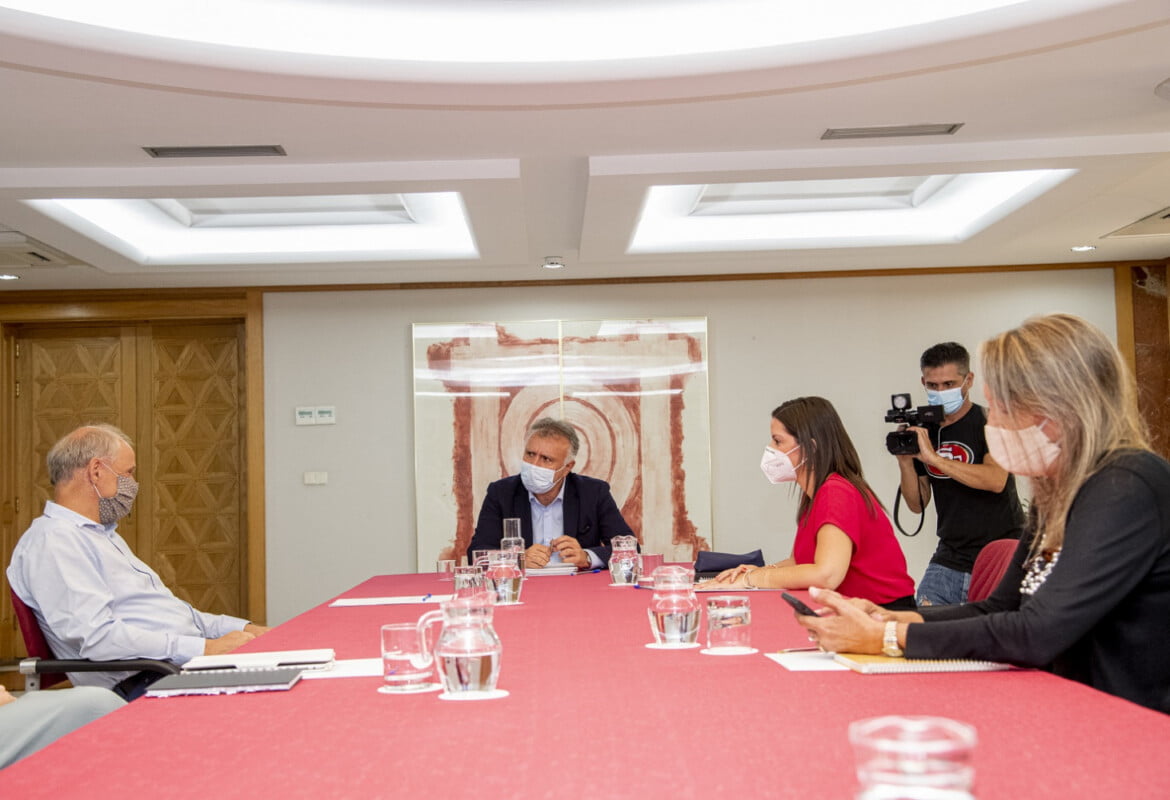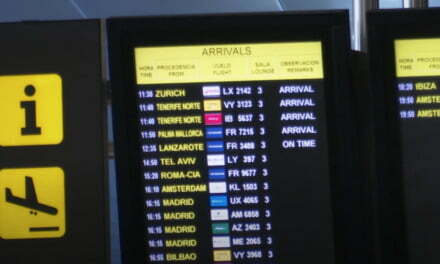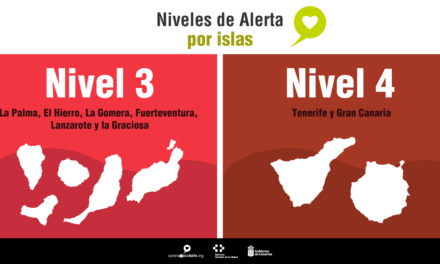The German government has announced, this Wednesday afternoon, that the Canary Islands are, as of today, being placed on the Germany’s travel “Blacklist” of regions to which they do not recommend travel. Berlin say that they will oblige all those coming from the islands, as well as the rest of Spain, to either quarantine or to present a valid PCR test result on arrival at the airport to prove that they are not infected with the Covid-19 coronavirus.
Germany’s decision puts in check all the best hopes of the Canarian tourism sector, just weeks before the winter high season begins. Sebastian Ebel, TUI’s CEO of Hotels & Resorts, Cruises, Destination Experiences for the world’s leading tour operator, asked the regional government this week to work hard to control the contagion curve over coming weeks if there is to be any hope of removing the recommendation to avoid the archipelago, which has been up until now the main sun and beach destination in Europe.
The President of the Canary Islands, Ángel Víctor Torres, and the Minister of Tourism, Industry and Commerce, Yaiza Castilla, held a meeting this Monday morning, August 31, with the CEO of the TUI group, Sebastian Ebel, to establish strategies to help guarantee the flow of tourists this coming winter season. The Regional Government is working to lower the current COVID-19 incidence rates on the Islands, to convince source market governments to no longer require risk warnings to their citizens about the archipelago nor advise against traveling to the Archipelago. Torres called the gathering an “important meeting”, while thanking the TUI CEO for traveling to Gran Canaria in person. Torres stressed that the Canary Islands are adopting “all necessary measures and decisions to reverse the current COVID-19 situation on the Islands”, because “we must try to make the current contagion data more favourable.” The Canary Islands President once again emphasised the importance of citizen commitment to the extreme application of anti-COVID regulations and called once more for Canarian society to show real responsibility in implementing those regulations. This is “key” to reducing contagion levels. Torres said, in no uncertain terms, “we are putting being a safe destination at risk” and the Government of the Canary Islands is working “to reverse the current health situation as soon as possible.” Torres emphasised how important it is to guarantee safety for the traveler, also in returning back to their own country, echoing the the TUI group, he said he considered it essential that we carry out PCR tests both at origin and destination, something that has been a constant demand from the Canary Islands government, which was the very first to request this measure. Torres emphasised the imminent possibility of implementing the control mechanism, because it provides “greater security” and “is the best for everyone.”The Canary Islands government and the TUI group met on Monday to discuss rescuing the winter high season
 The detected infection rates on the Canary Islands already far exceed 50 cases per 100,000 inhabitants, a limit established by the Robert Koch public health institute, Germany’s central scientific institution in the field of biomedicine, who help define the primary criteria for being placed Germany’s travel “Blacklist”. Our combined rate of infection on the Islands stands at 79.73/100,000 over the last 7 days.
The detected infection rates on the Canary Islands already far exceed 50 cases per 100,000 inhabitants, a limit established by the Robert Koch public health institute, Germany’s central scientific institution in the field of biomedicine, who help define the primary criteria for being placed Germany’s travel “Blacklist”. Our combined rate of infection on the Islands stands at 79.73/100,000 over the last 7 days.
Since July the United Kingdom, our primary market for the islands, have recommended against all but essential travel to Spain, including The Canary Islands. Netherlands, Poland and most Nordic countries followed suit and have also established restrictions. Only Sweden remains as the only ‘open’ market. The result of all this is that 90% of Nordic reservations until November have now been lost.
Hoteliers and tourism businesses now set their sights on December, with the expected drop in temperatures across northern Europe helping to encourage the market again, that is of course if the working protocols in the current health challenge can be implemented and met.













